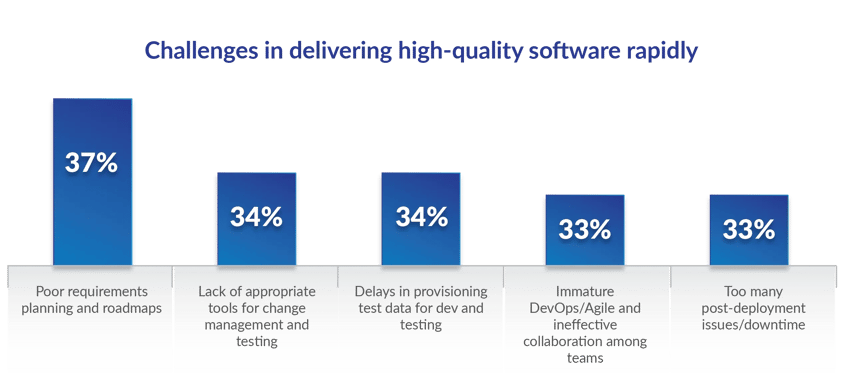Modern business landscapes demand unprecedented speed, compliance, and data-driven decision-making. Agility is a necessity rather than a ‘nice to have’. Roughly five years ago, there was a big surge of interest in how DevOps can support businesses that run SAP… but the excitement died down again, as the theory never became practice. With development methodologies like CI/CD and version control solutions like Git in non-SAP technology...
Modern business landscapes demand unprecedented speed, compliance, and data-driven decision-making. Agility is a necessity rather than a ‘nice to have’.
But accelerating SAP development processes present numerous challenges. Given the critical role SAP plays in most organisations, even small disruptions can have a significant impact on business operations. Organisations need to look at how to develop faster, and also how to speed up testing in this new world, without jeopardising the stability of the Production environment.
Roughly five years ago, there was a big surge of interest in how DevOps can support businesses that run SAP… but the excitement died down again, as the theory never became practice. With development methodologies like CI/CD and version control solutions like Git in non-SAP technology, teams can manage and merge code faster by allowing multiple developers to develop at the same time. This is different to SAP's traditional methodologies that capture changes in transports instead. Changing mindsets, skills and technology to apply these methodologies made it tough to embrace DevOps in SAP landscapes.
We have been able to implement Agile for non-SAP projects, but there is a general perception that Agile is not compatible or not easy for SAP.
S V Prasad Gandhikota, Senior Systems Analyst and Delivery Leader, Conagra Brands (Source: SAPinsider research paper "Cloud and SAP S/4HANA DevOps" 2022)
In the last couple of years, AI and LLMs have exploded onto the scene, transforming how we interact with technology. Using AI to automate testing and analyse code can help us achieve new levels in SAP processes.
Open-source systems like abapGit have gained more traction, and the move to the cloud with hyperscalers like AWS, Azure and Google has brought innovation to the space, reigniting the potential of DevOps in SAP. It couldn't be more timely; SAP customers are facing an unprecedented amount of change.
SAP S/4HANA adoption is also driving the need to have processes in place to improve how you develop in your systems. With many organisations moving to the cloud, adopting cloud thinking and development methods is on the RISE (pun intended).
In a study carried out by SAPinsider in 2022, the reasons people struggle to implement DevOps include:
And we have several high-profile deployment failures that continue to make the news.

©SAPinsider report
The top three challenges highlighted in the study were:
With SAP S/4HANA in the picture, there’s no better time to develop an enterprise-wide Agile/DevOps and testing strategy that reduces risk and delivers high-impact applications faster.
According to SAPinsider, the most common impact that SAP S/4HANA migration is having is in increased use of test automation (50% of those surveyed), integration testing (47%), and end-to-end process testing (45%). 28% of respondents are implementing Agile or DevOps before or during the SAP S/4HANA move.
The benefits of implementing DevOps before or during the move include:
LLMs deployed without correct thought and funding could lead to data being undervalued and mishandled.
To successfully implement DevOps in SAP, organisations should focus on the following practices:
In conclusion, DevOps is worth reconsidering: it can significantly improve software delivery processes, enhance system reliability, and drive innovation. And the capability it might help to unlock is now more appealing than ever before.
It might be time to break free from traditional methodologies and embrace the power of DevOps to unlock the full potential of your SAP systems.
Maria has worked in the SAP industry for over nine years, gaining experience in the HCM and HXM space, as well as SAP Security and Landscape Transformation. As a seasoned Marketing Expert, she is passionate about investigating the effects of the current macro-economic climate on the IT world, and how our products and services can help our clients respond to a constantly changing environment.